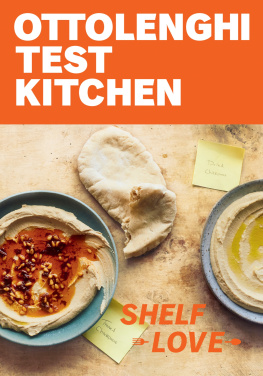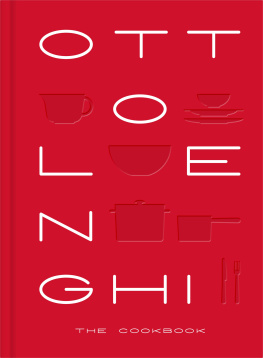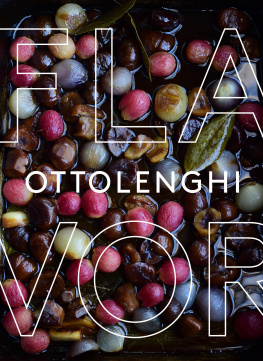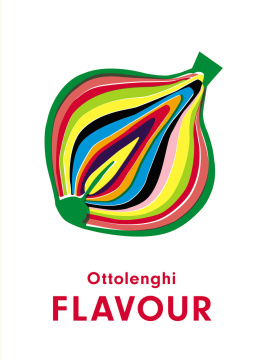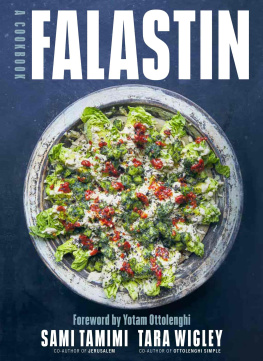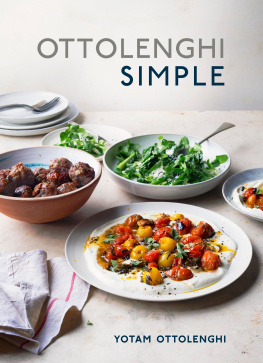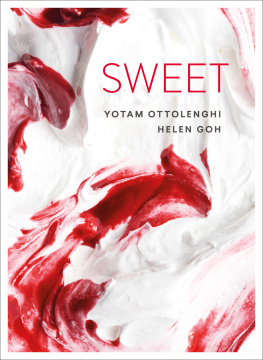Ottolenghi Yotam - Jerusalem
Here you can read online Ottolenghi Yotam - Jerusalem full text of the book (entire story) in english for free. Download pdf and epub, get meaning, cover and reviews about this ebook. year: 2012, publisher: Ebury Publishing, genre: Home and family. Description of the work, (preface) as well as reviews are available. Best literature library LitArk.com created for fans of good reading and offers a wide selection of genres:
Romance novel
Science fiction
Adventure
Detective
Science
History
Home and family
Prose
Art
Politics
Computer
Non-fiction
Religion
Business
Children
Humor
Choose a favorite category and find really read worthwhile books. Enjoy immersion in the world of imagination, feel the emotions of the characters or learn something new for yourself, make an fascinating discovery.

- Book:Jerusalem
- Author:
- Publisher:Ebury Publishing
- Genre:
- Year:2012
- Rating:5 / 5
- Favourites:Add to favourites
- Your mark:
- 100
- 1
- 2
- 3
- 4
- 5
Jerusalem: summary, description and annotation
We offer to read an annotation, description, summary or preface (depends on what the author of the book "Jerusalem" wrote himself). If you haven't found the necessary information about the book — write in the comments, we will try to find it.
Jerusalem — read online for free the complete book (whole text) full work
Below is the text of the book, divided by pages. System saving the place of the last page read, allows you to conveniently read the book "Jerusalem" online for free, without having to search again every time where you left off. Put a bookmark, and you can go to the page where you finished reading at any time.
Font size:
Interval:
Bookmark:
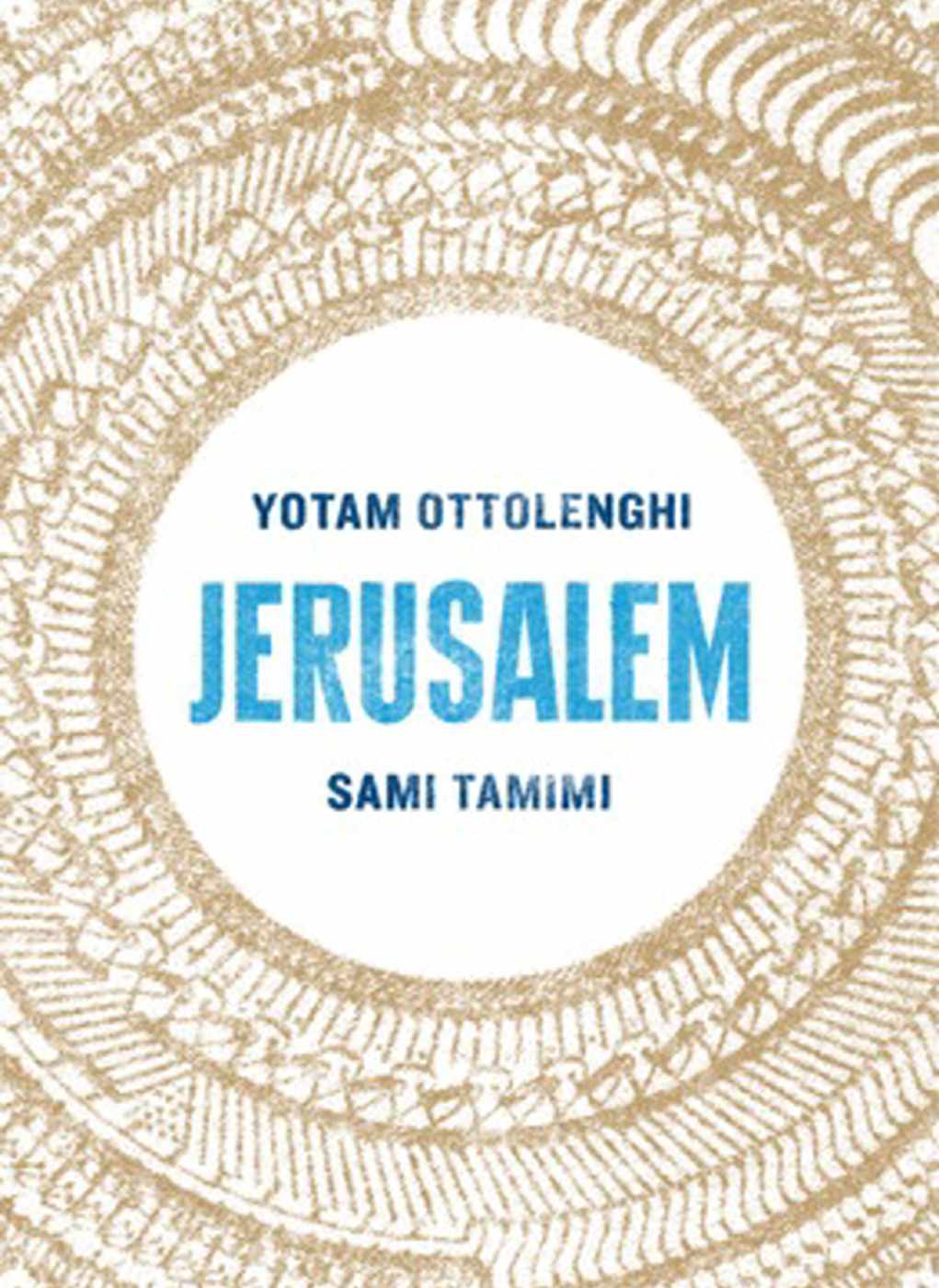
Contents

List of Recipes

About the Book
The flavours and smells of this city are our mother tongue: wild herbs picked on school trips, days in markets, the smell of the dry soil on a summers day, goats and sheep roaming the hills, fresh pitas, chopped parsley, chopped liver, black figs, syrupy cakes, crumbly cookies.
YOTAM OTTOLENGHI and SAMI TAMIMI
About the Authors
Yotam Ottolenghi completed a Masters degree in philosophy and literature whilst working on the news desk of an Israeli daily, before coming to London in 1997. He started as an assistant pastry chef at the Capital and then worked at Kensington Place, Launceston Place, Maison Blanc and Baker and Spice, before starting his own eponymous group of restaurants/food shops, with branches in Notting Hill, Islington, Belgravia and Kensington.
Sami Tamimi became head chef at Lilith in Tel Aviv in 1989, and moved to London in 1997 where he set up the traiteur section at Baker and Spice. It was here that he met Yotam and he has since worked as head chef at Ottolenghi.

Additional text by Nomi Abeliovich and Noam Bar
Food photography by Jonathan Lovekin
Location photography by Adam Hinton
Introduction
One of our favourite recipes in this collection, a simple couscous with tomato and onion, is based on a dish Samis mum, Naama, used to cook for him when he was a child in Muslim east Jerusalem. At around the same time, in the Jewish west of the city, Yotams dad, Michael, used to make a very similar dish. Being Italian, Michaels dish was made with small pasta balls called ptitim. Both versions were beautifully comforting and delicious.
A dish just like Michaels is part of the Jewish Tripolitan (Libyan) cuisine. It is called shorba, and is a result of the Italian influence on Libyan food during the years of Italian rule of the country, in the early twentieth century. So Michaels ptitim was possibly inspired by Tripolitan cooking in Jerusalem, which in turn was influenced by Michaels original Italian culture. The anecdotal icing on this cross-cultural cake is that Michaels great uncle, Aldo Ascoli, was an admiral in the colonial Italian navy that raided Tripoli and occupied Libya in 1911.
Confusing? This is Jerusalem in a nutshell: very personal, private stories immersed in great culinary traditions that often overlap and interact in unpredictable ways, creating food mixes and culinary combinations that belong to specific groups but also belong to everybody else. Many of the citys best-loved foods have just as complicated a pedigree as this one.

This book and this journey into the food of Jerusalem form part of a private odyssey. We both grew up in the city, Sami in the Muslim east and Yotam in the Jewish west, but never knew each other. We lived there as children in the 1970s and 1980s and then left in the 1990s, first to Tel Aviv and then to London. Only there did we meet and discover our parallel histories; we became close friends and then business partners, alongside others in Ottolenghi.
Although we often spoke about Jerusalem, our hometown, we never focused much on the citys food. Recently, however is it age? we have begun to reminisce over old food haunts and forgotten treats. Hummus which we hardly ever talked about before has become an obsession.
It is more than 20 years since we both left the city. This is a serious chunk of time, longer than the years we spent living there. Yet we still think of Jerusalem as our home. Not home in the sense of the place you conduct your daily life, or constantly return to. In fact, Jerusalem is our home almost against our wills. It is our home because it defines us, whether we like it or not.
The flavours and smells of this city are our mother tongue. We imagine them and dream in them, even though weve adopted some new, perhaps more sophisticated languages. They define comfort for us, excitement, joy, serene bliss. Everything we taste and everything we cook is filtered through the prism of our childhood experiences: foods our mothers fed us, wild herbs picked on school trips, days spent in markets, the smell of the dry soil on a summers day, goat and sheep roaming the hills, fresh pitas with minced lamb, chopped parsley, chopped liver, black figs, smoky chops, syrupy cakes, crumbly cookies. The list is endless too long to recall and too complex to describe. Most of our food images lie well beyond our consciousness: we just cook and eat, relying on our impulses for what feels right, looks beautiful and tastes delicious to us.
And this is what we set out to explore in this book. We want to offer our readers a glimpse into a hidden treasure, and at the same time explore our own culinary DNA, unravel the sensations and the alphabet of the city that made us the food creatures we are.
In all honesty, this is also a self-indulgent, nostalgic trip into our pasts. We go back, first and foremost, to experience again those magnificent flavours of our childhood, to satisfy the need most grown-ups have to relive those first food experiences to which nothing holds a candle in later life. We want to eat, cook and be inspired by the richness of a city with 4000 years of history, that has changed hands endlessly and that now stands as the centre of three massive faiths and is occupied by residents of such utter diversity it puts the old tower of Babylon to shame.
Jerusalem food
Is there even such a thing as Jerusalem food, though? Consider this: there are Greek Orthodox monks in this city; Russian Orthodox priests; Hasidic Jews originating from Poland; non-Orthodox Jews from Tunisia, from Libya, from France or from Britain; there are Sephardic Jews that have been here for generations; there are Palestinian Muslims from the West Bank and many others from the city and well beyond; there are secular Ashkenazi Jews from Romania, Germany and Lithuania and more recently arrived Sephardim from Morocco, Iraq, Iran or Turkey; there are Christian Arabs and Armenian Orthodox; there are Yemeni Jews and Ethiopian Jews but there are also Ethiopian Copts; there are Jews from Argentina and others from southern India; there are Russian nuns looking after monasteries and a whole neighbourhood of Jews from Bukhara (Uzbekistan).
All of these, and many, many more, create an immense tapestry of cuisines. It is impossible to count the number of cultures and sub-cultures residing in this city. Jerusalem is an intricate, convoluted mosaic of peoples. It is therefore very tempting to say there isnt such a thing as a local cuisine. And indeed, if you go to the ultra-Orthodox neighbourhood of Meah Shearim and compare the prepared food sold in grocery shops there to the selection laid out by a Palestinian mother for her children in the neighbourhood of A-tur in the east of the city you couldnt be blamed for assuming these two live on two different culinary planets.
However, if you take a step back and look at the greater picture, there are some typical elements that are easily identifiable in most local cuisines and crop up throughout the city. Everybody, absolutely everybody, uses chopped cucumber and tomatoes to create an Arab salad or an Israeli salad, depending on point of view. Stuffed vegetables with rice or rice and meat also appear on almost every dinner table, as does an array of pickled vegetables. Extensive use of olive oil, lemon juice and olives is also commonplace. Baked pastries stuffed with cheese in all sorts of guises are found in most cultures.
Font size:
Interval:
Bookmark:
Similar books «Jerusalem»
Look at similar books to Jerusalem. We have selected literature similar in name and meaning in the hope of providing readers with more options to find new, interesting, not yet read works.
Discussion, reviews of the book Jerusalem and just readers' own opinions. Leave your comments, write what you think about the work, its meaning or the main characters. Specify what exactly you liked and what you didn't like, and why you think so.

